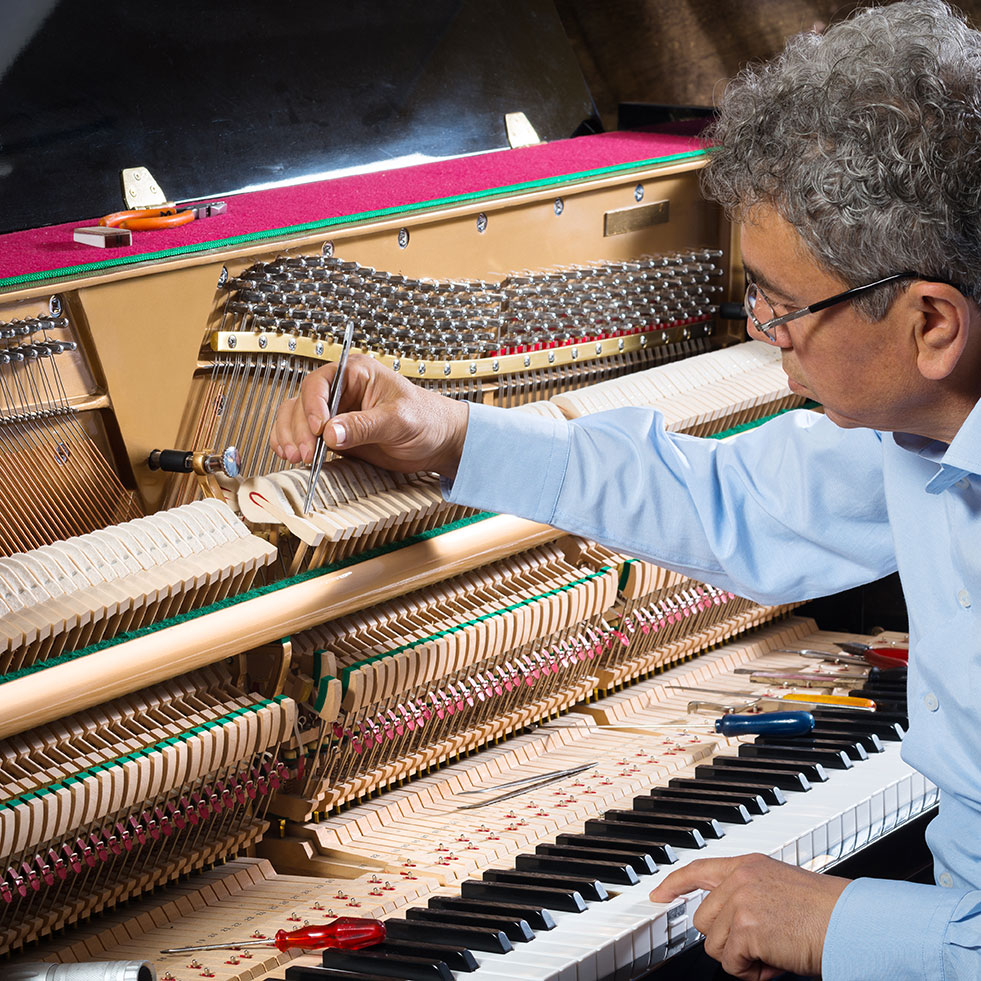Safeguard Your Investment with Regular Piano Tuning
Las Vegas Pianos’ tuning experts will keep your piano sounding its best
Whether you’re a beginner or an experienced musician, playing a piano that sounds good is essential. More importantly, regularly tuning your piano protects your investment and makes playing the piano more enjoyable. Frequently tuned pianos are easier to keep in tune as it’s more time-consuming (and expensive!) to tune a neglected piano.
Why Do Pianos Go Out Of Tune?
- Humidity and Temperature:
Pianos are primarily made of wood, which is sensitive to environmental changes. In summer, when the temperature and humidity rise, a piano’s soundboard, pin block, and bridge naturally swell and pull the piano strings tighter, causing the sound to go sharp. In winter, cooler, dry air causes wood to contract, which loosens strings and causes a piano’s tone to go flat. If you live in a climate with extreme temperature fluctuations, consider positioning your piano away from an exterior wall and avoid placing it near a fireplace, stove, or near vents. - Moving:
Your piano is a sensitive instrument. Tilting or jostling can cause it to fall out of tune (as can the humidity and temperature changes of a new environment!). - Forceful Playing:
You might not consider it, but excessively hard playing can cause a piano to go out of tune if the force of the hammer action is strong enough to stretch strings. - Age:
Like anything that ages, materials inside a piano can become worn or stiff over time, which can affect its ability to stay tuned for long lengths of time.
Recommended Piano Tuning Frequency

Recommendations vary by brand, but most professionals agree that a new piano should be tuned 3 – 4 times the first year as it adjusts to your home’s environment.
After the first year, a piano should be tuned 1 – 2 times each year (though some owners appreciate the more sustainable results of having their instrument tuned seasonally).

